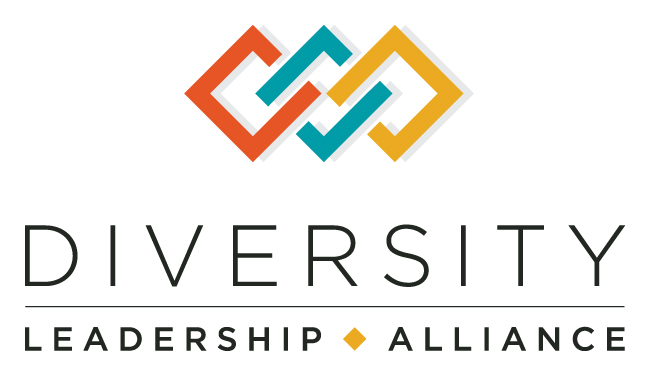
In the United States, nonprofit organizations play a pivotal role in various sectors, addressing societal issues and fostering community development. As these organizations strive to be change-makers, the importance of leadership becomes more pronounced. Leadership development is essential for achieving nonprofit success, creating a ripple effect that enhances operational efficiency and community impact.
Understanding the Nonprofit Sector
The nonprofit sector in the United States is vast and diverse, comprising over 1.5 million organizations. These entities are crafted to tackle societal challenges ranging from poverty alleviation to environmental conservation. As of 2022, nonprofits contributed approximately $1 trillion to the U.S. economy, highlighting their significant role in national socio-economic dynamics.
The Role of Technology in Leadership Development
In the rapidly evolving digital landscape, technology presents opportunities for nonprofits to enhance leadership development. E-learning platforms, online workshops, and virtual networking events enable leaders to hone their skills, access diverse perspectives, and participate in knowledge exchange without geographical constraints.
E-learning platforms offer flexible, self-paced courses that allow emerging and existing leaders to upskill on their own terms. Whether it’s strategic planning, team management, or financial literacy, online modules can be tailored to suit different leadership levels and learning styles.
Online workshops and webinars provide interactive learning experiences, often led by industry experts or thought leaders, allowing nonprofit professionals to stay current with best practices and evolving trends. These sessions not only build knowledge but also create opportunities for real-time engagement and Q&A, fostering a more dynamic learning environment.
Virtual networking events and communities of practice connect nonprofit leaders across regions and sectors, encouraging collaboration, mentorship, and the sharing of lived experiences. This global exchange of ideas cultivates diverse perspectives and encourages innovation in leadership approaches.
By embracing these digital tools, nonprofits can cultivate a stronger, more agile leadership pipeline—one that is better equipped to navigate complex challenges and drive meaningful change in the communities they serve
Financial Constraints and Leadership
Nonprofits often operate with constrained budgets, which impacts their ability to invest in leadership programs. The challenge is compounded by the need to demonstrate accountability and impact. According to a study conducted by the National Council of Nonprofits, a significant portion of nonprofits reported issues with inadequate leadership capacity, emphasizing the importance of targeted leadership development initiatives.
Leadership Turnover in Nonprofits
Leadership turnover is a prevalent issue affecting nonprofit organizations. Statistics suggest that around 30% of nonprofit leaders leave their positions within the first five years. The constant churn can lead to loss of institutional knowledge, decreased morale, and disrupted services, further underlining the need for sustainable leadership development.
Effective Leadership Practices in Nonprofits
Effective leadership in the nonprofit sector requires an ability to navigate complex stakeholder environments, foster collaborative networks, and drive mission-centric objectives. Organizations like the Diversity Leadership Alliance provide educational opportunities and resources tailored to building a cohesive, empowered, and inclusive community. Embracing such transformative practices can significantly enhance nonprofit success.
Leveraging Diversity and Inclusion
Diversity and inclusion are essential components of successful nonprofit leadership. A study by Deloitte uncovered that organizations with diverse leaders achieved 19% higher innovation revenues. Integrating diverse perspectives not only enriches organizational culture but also propels nonprofits toward achieving greater impact and resonance with their constituencies.
The Role of Technology in Leadership Development
In the rapidly evolving digital landscape, technology presents opportunities for nonprofits to enhance leadership development. E-learning platforms, online workshops, and virtual networking events enable leaders to hone their skills, access diverse perspectives, and participate in knowledge exchange without geographical constraints.
Impact of Skilled Leadership on Nonprofit Success
Research indicates that organizations with skilled leadership are better positioned to achieve their mission and sustain impact. For instance, data from the BridgeSpan Group reveals that strategic investments in leadership development correlate with better financial performance and innovation within nonprofits.
Supporting Nonprofits through Partnerships
Building resilient nonprofit ecosystems involves fostering partnerships with government, corporate, and community stakeholders. Such collaborations provide access to resources, best practices, and innovation that enhance leadership development efforts. Engaging with initiatives like the Diversity Leadership Alliance helps establish inclusive networks crucial for nonprofit success.
Key Takeaways for Empowered Nonprofit Leadership
Leadership development is indispensable for nonprofit success, serving as the beacon for responsive, adaptable, and mission-driven organizations. Through strategic investments in leadership capacities, embracing diversity, and fostering community collaborations, nonprofits can navigate their challenges and harness opportunities, creating a profound societal impact.
Frequently Asked Questions
What are the key challenges in nonprofit leadership development?
Nonprofit leadership development faces challenges such as inadequate funding, high turnover rates, and diverse stakeholder demands. Financial constraints mean many nonprofits cannot dedicate adequate resources to leadership training. Moreover, the nonprofit sector often sees significant leadership churn, disrupting organizational continuity and effectiveness. Addressing these issues necessitates strategic focus on inclusive and sustainable leadership frameworks, leveraging community partnerships and resource-sharing initiatives to bolster capacity-building efforts.
How does diversity enhance nonprofit leadership?
Diversity enhances nonprofit leadership by fostering a breadth of perspectives, driving innovation, and increasing cultural agility. Diverse leadership teams can better understand and serve their communities, addressing a wider array of needs with sensitivity and effectiveness. According to studies, organizations with diverse leadership see improved financial outcomes and community engagement, validating the substantial benefits of integrating diversity into leadership development strategies. Embracing diversity helps build trust and resilience, essential elements for nonprofit success.
What is the impact of leadership turnover on nonprofits?
Leadership turnover presents significant challenges for nonprofits, including loss of institutional knowledge, disruption of services, and decreased organizational stability. High turnover rates can lead to interruptions in strategic direction, weakening stakeholder confidence and employee morale. Nonprofits must prioritize leadership retention through targeted development programs, enhancing job satisfaction, and fostering a supportive organizational culture to mitigate these adverse impacts and sustain their mission-driven work.
Why is technology important in nonprofit leadership development?
Technology is pivotal in nonprofit leadership development, offering tools and platforms for accessible learning, networking, and collaboration. It enables leaders to upskill through flexible e-learning modules, engage in virtual events, and connect with global expertise irrespective of physical boundaries. By leveraging technology, nonprofits can overcome resource constraints and enrich their leadership capacities, ultimately enhancing their effectiveness and impact in the community.
How can partnerships enhance nonprofit leadership?
Partnerships can significantly enhance nonprofit leadership by facilitating resource sharing, providing access to specialized expertise, and fostering collaborative innovation. Engaging with diverse stakeholders, including corporate, government, and community organizations, equips nonprofits with the support needed to implement effective leadership development initiatives. These collaborations enable knowledge exchange, amplify impact, and build resilience within the nonprofit sector, driving collective success and community progress.
For more information on leadership development and resources, visit Diversity Leadership Alliance.

